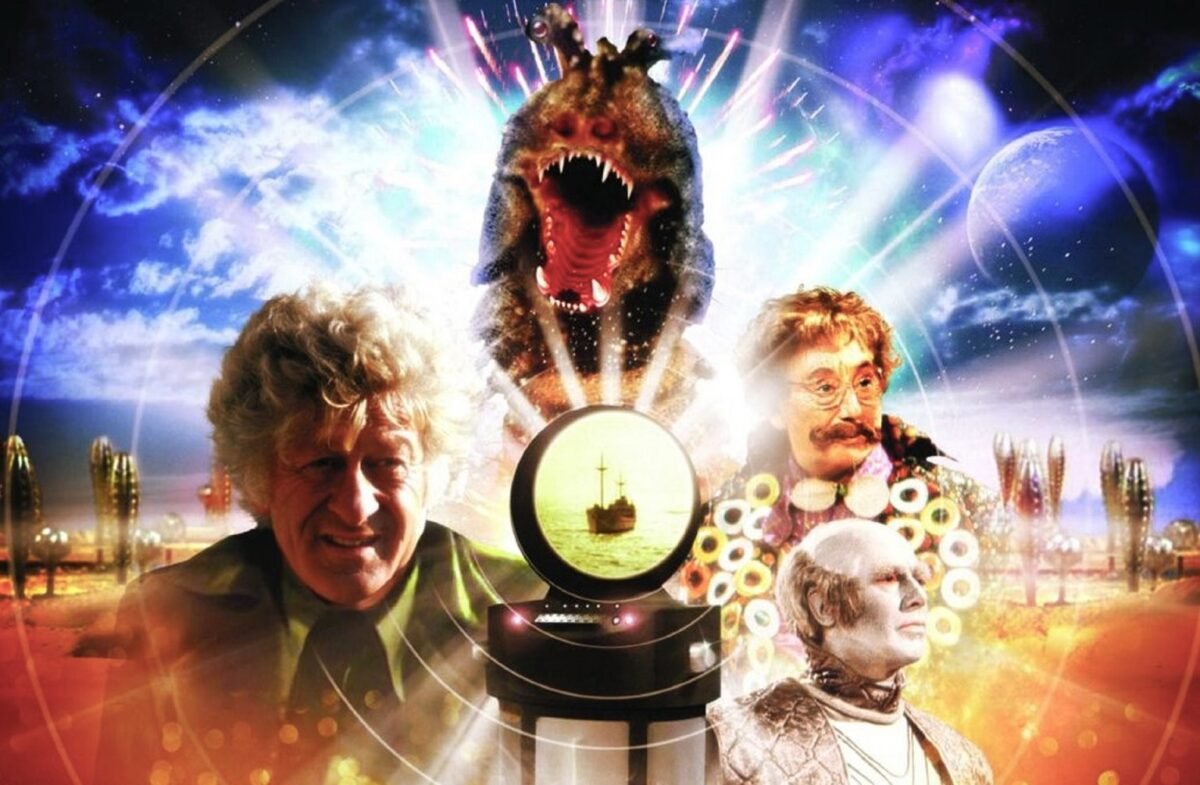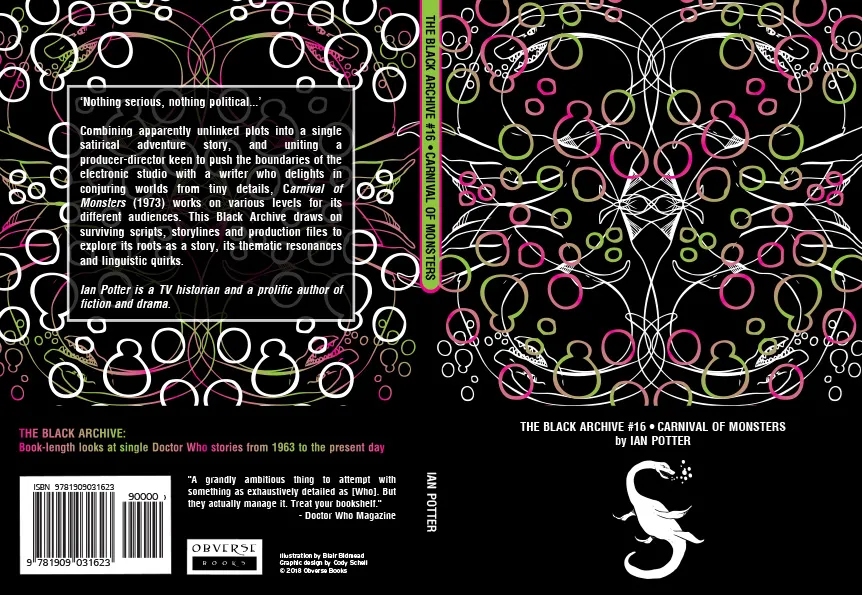Reviews of Doctor Who stories — classic and modern — are everywhere these days. You can dip into old episode guides and fanzines on eBay; you’ll find more recent reviews (or opinions masquerading as) on websites and monthly magazines. However, you’ll be hard pushed to find anything as in-depth, intelligent, and “un-reviewy” as Obverse Books’ ongoing series, The Black Archive.
Of course, there’s a reason for this: The Black Archive doesn’t review Doctor Who. Instead, and uniquely, it provides a detailed reading of the show, highlighting the background to the story in question, what might have influenced it, and how it can (or should) be interpreted. And that means they’re always worth digging back into.
Take the the February 2018 release, for instance. This opens the Black Archive on the 1972 serial, Carnival of Monsters, written by Robert Holmes, produced and directed by Barry Letts, and starring Jon Pertwee and Katy Manning, with Leslie Dwyer as Vorg.
Past the obligatory episode synopses, author Ian Potter opens by referring to the camera script, but it isn’t long before we’re presented with a show that is quite different to its public persona. Just as gaudy showman Vorg hides a past that features a potentially morally uncomfortable military service, so gaudy Carnival of Monsters turns out not to be the fun story about smuggling lifeforms in miniature form, but an allegory of the Raj era of British Indian colonialism.
The evidence comes thick and fast, from Andrews’ references to “Johnny Chinaman” to Major Daly’s dissatisfaction with “Madrassi” workers, via the political machinations of the Tribunal members and their distaste for the Functionaries. Carnival of Monsters, it seems, owes some debt to writer Robert Holmes’ childhood, and later military service. But there’s also something to be said of 1970s contemporary xenophobia, the “rabies panic” of EEC membership, and the lingering doubts and fears of open invitations to the Commonwealth countries. The fear of germs (particularly by Pletrac) at the space port/immigration underlines the Inter Minorian’s dislike of the dissimilar, notes Potter, something that is ultimately illustrated in their (and Vorg’s) dismissal of the Tellurians as thinking beings. This is despite the clear similarity of all three forms, something it seems Holmes was keen to highlight.

Subverting Doctor Who‘s conventions isn’t limited to the design of aliens in Carnival of Monsters. But what does Robert Holmes’ treatment of the Doctor’s inability to initially communicate with chickens, Major Daly, the dense bureaucracy of the Tribunal or indeed Vorg (“parlae the carny?”) tell us? Does it underline the Doctor’s moral superiority vis-a-vis his role in banning the Miniscope? Sensibly, Potter doesn’t attempt to explain the science involved in Carnival of Monsters. Indeed, this might be the only commentary on the serial that doesn’t link the Miniscope to the Time Scoop of The Five Doctors.
The author’s view of Holmes as a convention-breaker spreads throughout this Black Archive, referring to the memorable cliffhangers (such as the fourth wall breaking removal of “bric-a-brac” from the Miniscope), the collision of film and video between location and studio recording altering the viewer’s perception of the Miniscope’s worlds, and the unusual use of up-and-down action (e.g. the Doctor and Jo navigating the machine’s interior).
Ian Potter also successfully highlights the intelligence of Holmes’ world-building, but don’t let this fool you into thinking the story (and this Black Archive) is all about reflections of political change in Doctor Who. Much influence came from the production team, from casting (particular the women, who as with much 1970s Who, are regrettably sidelined), rewriting (and input from script editor Terrance Dicks), model design (mostly the Drashigs) and location choices, to the famous “Delaware Mix” of the Doctor Who theme tune. That this, and the bizarre repeating edit of episode 2 made it to the 1990s VHS release thankfully isn’t beyond the (major) scope of this Black Archive.
Whimsical and serious, perhaps dry in places, this Black Archive is a tonally perfect companion to Carnival of Monsters.
The Black Archive #16: Carnival of Monsters is on sale now from Obverse Books.


